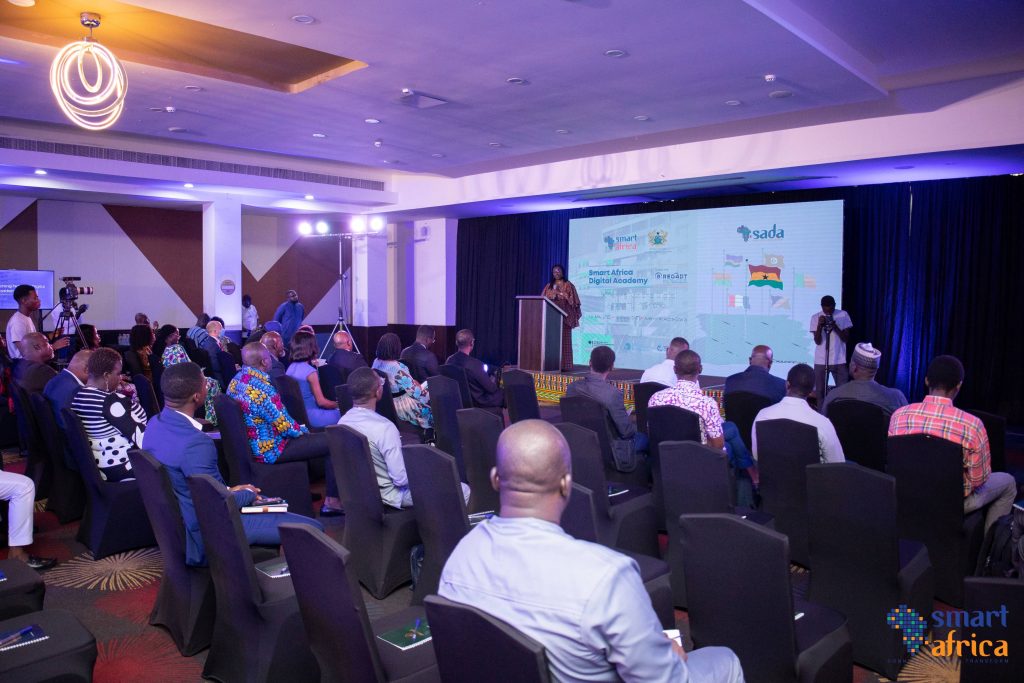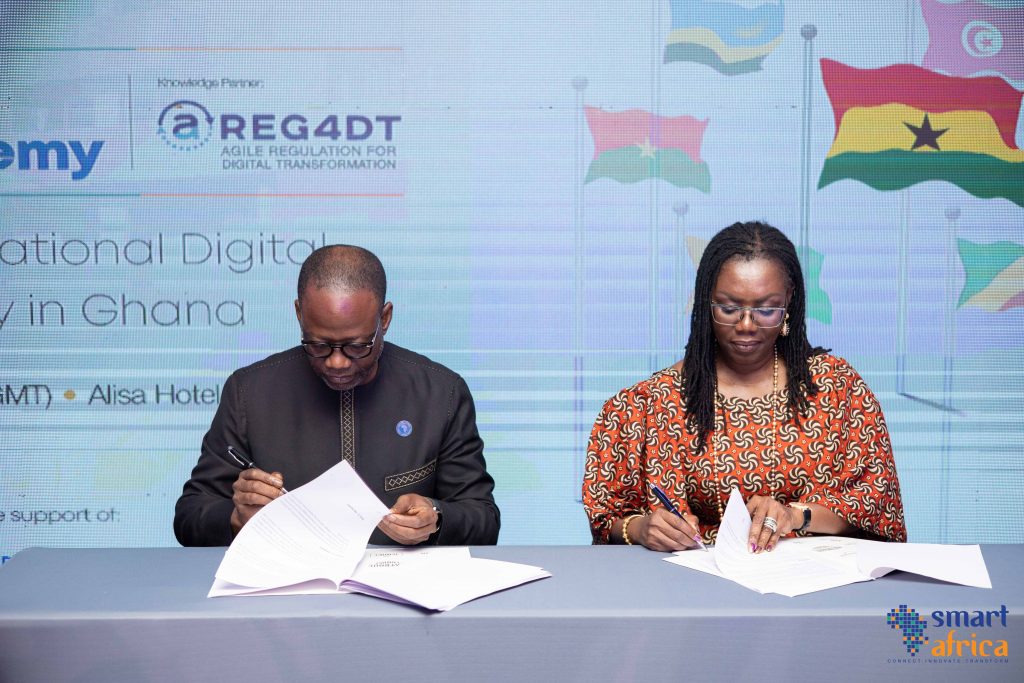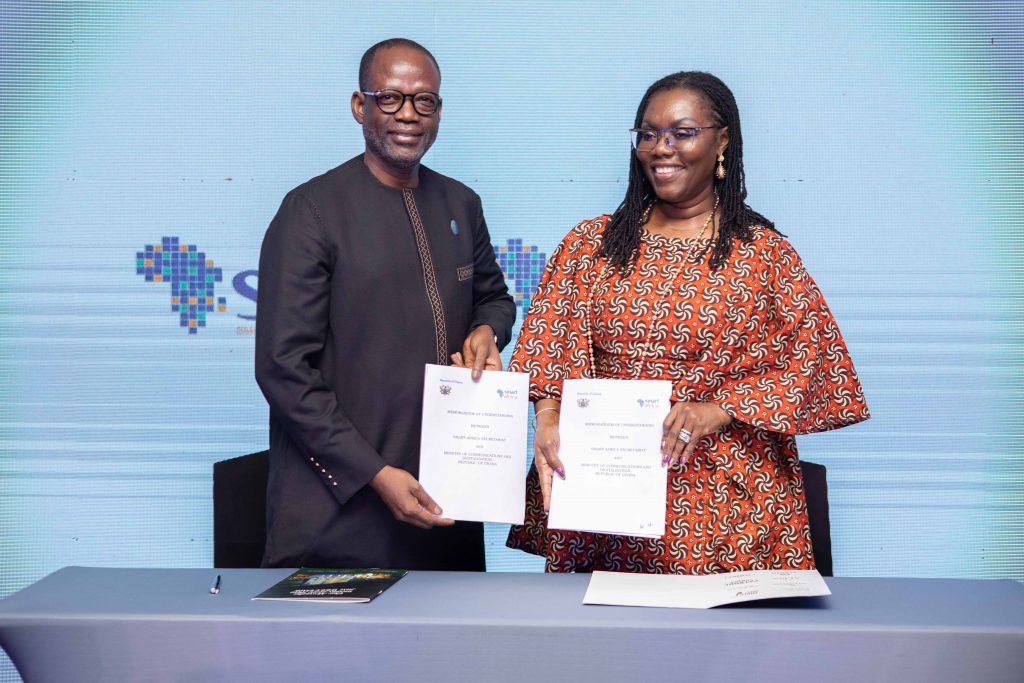Smart Africa’s capacity building arm, the Smart Africa Digital Academy (SADA) in partnership with Ghana’s Ministry of Communications and Digitalisation have launched a national digital academy in the country, marking the official kick off of in-country implementation of the initiative. The agreement is contained within a Memorandum of Understanding (MOU) signed today between the Smart Africa Alliance and the Ghana’s Ministry Communications and Digitalisation. The launch in Ghana follows the roll out of national digital academies of SADA that took place in the Republic of Congo in February and in Rwanda in March.
As a pan-African dynamic learning ecosystem, SADA aims to improve digital skills qualifications, employability, and meet the emerging talent needs of African citizens. The national digital academy will support the uniquely identified digital skills priority needs at the national level. Furthermore, such national digital academies will soon be rolled out in Benin, Burkina Faso, Côte d’Ivoire, Tunisia, Kenya and the Democratic Republic of Congo.
Prior to this official launch, SADA implemented in April a federated cloud proof of value workshop in Accra where over 100 people from the public and private sector were trained. This workshop aimed to strengthen the countries’ Data Centers and Cloud Services ecosystem with the collaboration of our private sector partners, HPE and Intel. Additionally, this week, SADA held two other peer learning workshops; one on Digital Payment and the other on Artificial Intelligence, during which more than 60 experts gathered to gain knowledge and exchange best practices on digital payment ecosystem, and in developing AI Frameworks in Ghana.

As part of the next steps, Smart Africa and the Ministry of Communications and Digitalisation will continue to collaborate with the key stakeholders to successfully execute the defined priority initiatives under the SADA Ghana framework. These initiatives range from executive education in specialized topics to training of teachers and training of trainers in advanced computing. They will be implemented in collaboration with our development partners and private partners such as GIZ, World Bank, ITU, HPE, A4AI and more.
Commenting on the launch, Mr. Lacina Koné, the Director General and CEO of Smart Africa said: “Ghana is one of the most active countries of the Smart Africa alliance and has been instrumental in advancing digital skills of its citizens. We are pleased to contribute positively to the nation capacity building through the launch of SADA in Ghana.”
“At the heart of the digital transformation lies the need to bridge the digital skills gap of our continent’s future and present workforce. I would like to thank all our partners and the Republic of Ghana for officially onboarding the SADA journey” he added.


Read Also:
- The Smart Africa Alliance Launches Smart Africa Digital Academy (SADA) in Congo
- Trace and the Mastercard Foundation launch Free Learning App to Reach 26 Million Young Africans
- Interswitch Partners with Cisco Networking Academy to Equip Tertiary Institutions across Nigeria
- elev8 Education joins Amazon Web Services Training Partner Program
- Ecobank launches Leadership Training Programme to Support Women Entrepreneurs across Africa
Hon. Ursula Owusu-Ekuful, Minister of Communications and Digitalisation who graced the launch thanked Smart Africa and said “Today marks a proud moment for the people of Ghana and Africa at large in the area of digital skills and empowering African citizens in taking advantage of the digital transformation”
Since its start of operation in August 2020, focusing on the Capacity Building for Decision Makers (CBDM) module, SADA has trained over 2,000 policy and decision-makers across 26 countries in trending digital transformation topics including Artificial Intelligence Use Cases, 5G Connectivity, Data Protection & Privacy, Rural Broadband Policies, Security Technologies, Regulatory and Innovative Sandboxing Environments, Data Centers and Cloud, Digital Identity for Underserved, ePayment, etc. The objective is to reach over 22,000 trained beneficiaries by 2023, supported by the SADA In-country implementation wave.

